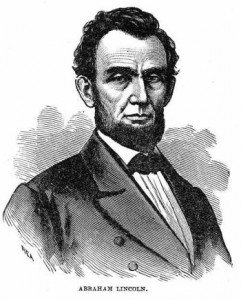 In an attempt to draw Union forces away from Petersburg, Confederate General Jubal A. Early has for days been ransacking territory behind enemy lines. Now in Maryland, Early’s troops have ransomed Hagerstown and Middletown and hope to take Frederick next.
In an attempt to draw Union forces away from Petersburg, Confederate General Jubal A. Early has for days been ransacking territory behind enemy lines. Now in Maryland, Early’s troops have ransomed Hagerstown and Middletown and hope to take Frederick next.
This morning, however, Northern troops on a scouting mission run into a contingent of Early’s Confederate troops near Middletown. The Confederates win the skirmish, forcing the Federals to withdraw. Afterwards, a thousand Confederate troops under Gen. Bradley T. Johnson set out for Frederick. Johnson is a native of Frederick, his house having since been confiscated by the United States, for which he seeks revenge.
The delayed departure allows Union forces time to prepare. When the Confederates arrive at Frederick, they encounter Northern troops from the 3rd Potomac Home Brigade and the 8th Illinois, arrayed in a defensive line. The Battle of West Frederick ensues, lasting for four hours in the late afternoon and early evening. The Confederates are forced to withdraw, giving Union forces the victory.
Confederate reinforcements soon arrive, and a second battle is fought near Frederick, the Battle of Monocacy. Although the South wins this battle, the delays in and around Frederick provide the Union ample time to reinforce Early’s next target: Washington, D.C. Foiled in their plans to invade Washington and hopefully turn the tide of the war, Confederate forces return to Virginia.
Even as the planned invasion of Washington is taking shape, U.S. President Abraham Lincoln yet again makes an official proclamation in which he declares a national day of “humiliation and prayer” that citizens may call upon God to show his favor to the United States.
Perhaps lurking in the religious language Lincoln employs are vestiges of his Baptist upbringing.
By the President of the United States of America
A ProclamationWhereas the Senate and House of Representatives at their last session adopted a concurrent resolution, which was approved on the 2d day of July instant and which was in the words following, namely:
That the President of the United States be requested to appoint a day for humiliation and prayer by the people of the United States; that he request his constitutional advisers at the head of the Executive Departments to unite with him as Chief Magistrate of the nation, at the city of Washington, and the members of Congress, and all magistrates, all civil, military, and naval officers, all soldiers, sailors, and marines, with all loyal and law-abiding people, to convene at their usual places of worship, or wherever they may be, to confess and to repent of their manifold sins; to implore the compassion and forgiveness of the Almighty, that, if consistent with His will, the existing rebellion may be speedily suppressed and the supremacy of the Constitution and taws of the United States may be established throughout all the States; to implore Him, as the Supreme Ruler of the World, not to destroy us as a people, nor suffer us to be destroyed by the hostility or connivance of other nations or by obstinate adhesion to our own counsels, which may be in conflict with His eternal purposes, and to implore Him to enlighten the mind of the nation to know and do His will, humbly believing that it is in accordance with His will that our place should be maintained as a united people among the family of nations; to implore Him to grant to our armed defenders and the masses of the people that courage, power of resistance, and endurance necessary to secure that result; to implore Him in His infinite goodness to soften the hearts, enlighten the minds. and quicken the consciences of those in rebellion, that they may lay down their arms and speedily return to their allegiance to the United States, that they may not be utterly destroyed, that the effusion of blood may be stayed, and that unity and fraternity may be restored and peace established throughout all our borders:
Now, therefore, I, Abraham Lincoln, President of the United States, cordially concurring with the Congress of the United States in the penitential and pious sentiments expressed in the aforesaid resolution and heartily approving of the devotional design and purpose thereof, do hereby appoint the first Thursday of August next to be observed by the people of the United States as a day of national humiliation and prayer.
I do hereby further invite and request the heads of the Executive Departments of this Government, together with all legislators, all judges and magistrates, and all other persons exercising authority in the land, whether civil, military, or naval, and all soldiers, seamen, and marines in the national service, and all the other loyal and law-abiding people of the United States, to assemble in their preferred places of public worship on that day, and there and then to render to the almighty and merciful Ruler of the Universe such homages and such confessions and to offer to Him such supplications as the Congress of the United States have in their aforesaid resolution so solemnly, so earnestly, and so reverently recommended.
In testimony whereof I have hereunto set my hand and caused the seal of the United States to be affixed.
Done at the city of Washington. this 7th day of July, A. D. 1864, and of the Independence of the United States the eighty-ninth.
ABRAHAM LINCOLN.
By the President:
WILLIAM H. SEWARD,
Secretary of State.
Sources: Stan Goldbert, “Little Known Battle Had Big Impact,” Frederick News-Post, December 18, 2011 (link); Joseph V. Collins, Battle of West Frederick, July 7, 1864: Prelude to the Battle of Monocacy, Xlibris, 2011, pp. 152-155 (link); Abraham Lincoln, “Proclamation 114 – Appointing a Day of National Humiliation, Fasting, and Prayer, July 7, 1864” (link)


